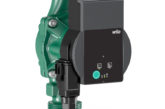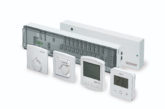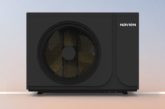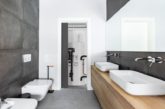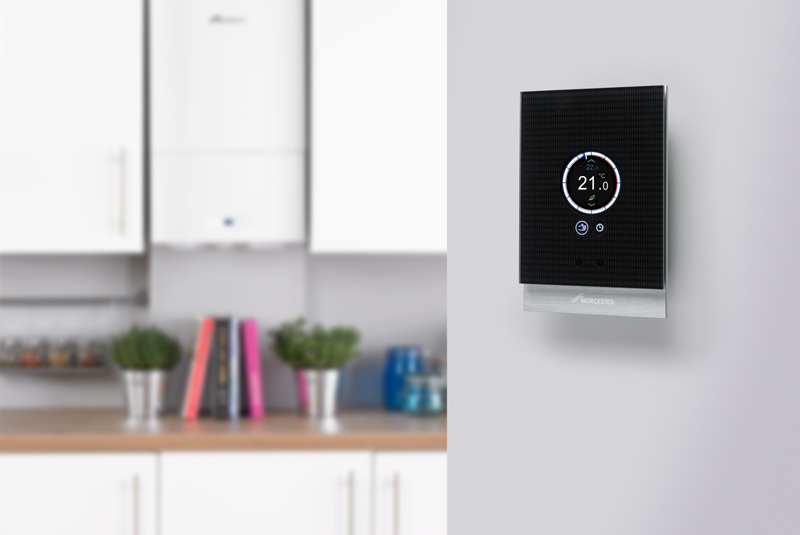
Since the referendum on Brexit and the change of Prime Minister, we have seen a number of changes within Government departments. With the reformed Department for Business, Energy & Industrial Strategy (DBEIS) still bound to meet the carbon reduction targets set by its predecessor the Department of Energy & Climate Change (DECC), Neil Schofield, Head of Government and External Affairs at Worcester, Bosch Group, discusses what can be expected to happen to the proposed Boiler Plus policy.
In the 11 years since condensing boilers were introduced to the market, their now-established technology has had the single biggest impact of any technology on reducing energy consumption within the UK. The failure thus far of renewables take-up and initiatives such as the Green Deal have made the Government rethink and look for more realistic and achievable results from the heating industry, as the need to continue lowering the UK’s carbon emissions remains as strong as ever.
One proposal put forward by DECC was that of Boiler Plus which, although it has been delayed due to changes within the administration, remains a policy that officials are keen to push through.
The issue at hand
Presently, we know that when fitting a boiler, the system should be chemically flushed and cleansed before having an inhibitor added to the water. Quite often this is not carried out and can result in a system being up to 6% less efficient in extreme cases.
The latest industry sales figures also show that there are around twice as many programmers and timers sold as there are room thermostats. This could mean that the existing room thermostat is being used again. However, it could also (and is more likely to) mean that as many as eight million properties have no room thermostat at all – despite having been part of the Building Regulations for some time. This, again, is a significant waste of potential energy savings.
Likewise, while there is no present requirement to install TRVs or a system filter when a new boiler is fitted to an existing system, that may also change under the scope of Boiler Plus.
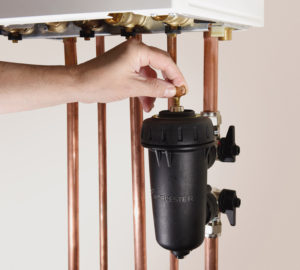
Selecting the best solution
Through a number of workshops discussing the proposal with boiler manufacturers, trade associations and most importantly, installers and heating engineers, DECC consulted with the industry on making minor changes to the second tier document of the Building Regulations. This will ensure considerations such as these become a minimum standard, rather than simply best practice.
Under the working title of Boiler Plus, the department proposed a number of options designed to help increase the efficiency of the boiler and reduce emissions. The first is that the minimum efficiency rating for a new boiler installation will be 92% Band A under the ErP rating system. Then controls are addressed and, even though this is already a current Building Regulation requirement, Boiler Plus will re-enforce the need for room thermostats and timers or programmers with all boiler replacements.
As this is an ongoing proposal, the exact outline is still being widely discussed by Government to determine what will make up the scheme. Within the policy, certain accessories such as smart controls such as weather or load compensation are expected to become mandatory, while others are likely to become optional but recommended additions designed to help improve system efficiency.
What will be included?
Having more sophisticated controls is widely regarded as a simple way to improve the system efficiency, allowing homeowners to make sure their appliance only fires when it is needed.
As an example, installing a TPI (Time Proportional & Integral) control will help a heating system to perform more efficiently as the device will turn the boiler off at a point, knowing there is enough residual heat to bring it up to the desired temperature. Additionally, internet enabled controls that offer weather and load compensation take not only the room temperature into account, but also monitor the outside temperature to regulate the boiler accordingly.
Similarly, FGHRUs can help to squeeze that bit more efficiency from a boiler by extracting the maximum heat expelled through flue gases. Presently regarded as an accessory tailored toward the new build and specification market as they provide extra SAP ratings, there is an argument to suggest their usage should become more widespread. Through Boiler Plus, it is expected there will be more opportunity to fit FGHRUs as a more realistic option.
Until the policy comes into play, the decision in the uptake of accessories remains with the homeowner. However, this list of options presents a number of possibilities to installers who remain committed to the most energy efficient heating systems. Ultimately though, anything that can save homeowners energy has to be welcomed and, if installers are to be responsible for presenting the options within Boiler Plus, it is essential that they are given the information they need regarding the benefits that each solution presents.


